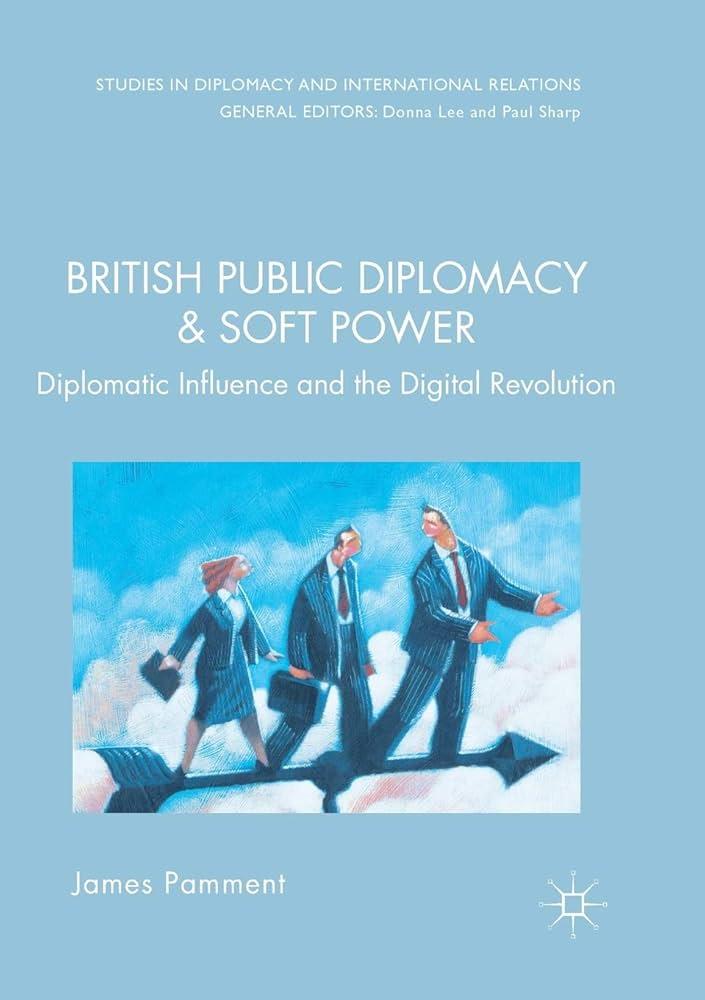In the intricate tapestry of global affairs, where power dynamics shift with the subtlety of a chess game and the stakes are nothing short of monumental, “” emerges as a beacon of insight and intrigue. This article delves into the captivating world of diplomacy, where every decision reverberates across continents and every handshake holds the promise—or peril—of future alliances. With an authoritative lens, we explore the delicate art of negotiation, the strategic maneuvering of statecraft, and the personalities that shape the course of history. As we navigate through the corridors of power and the clandestine channels of influence, prepare to be enthralled by the high-stakes drama that defines our world today.
Navigating the Complex Tapestry of Global Diplomacy
In the intricate world of international politics, the art of diplomacy stands as a cornerstone of global interaction. Diplomats are tasked with weaving through a labyrinth of cultural nuances, historical contexts, and political agendas. This role demands not only a profound understanding of international relations but also an ability to anticipate the ever-shifting dynamics on the world stage. Mastering the art of negotiation becomes essential, as diplomats strive to maintain peace, foster cooperation, and navigate conflicts with tact and poise.
- Understanding Cultural Contexts: Every nation brings its unique tapestry of traditions and beliefs. Diplomats must be culturally astute, ensuring their actions and words resonate positively across borders.
- Balancing National Interests: The delicate act of balancing a country’s interests with global priorities requires strategic foresight and an unwavering commitment to mutual benefit.
- Anticipating Global Trends: From climate change to technological advancements, diplomats must stay ahead of global trends, crafting policies that are both proactive and adaptive.
At the heart of this diplomatic dance lies the ability to communicate effectively. Language becomes a powerful tool, transcending mere words to convey respect, understanding, and intent. In this realm, a single misstep can lead to misunderstandings with far-reaching consequences. Thus, the diplomat’s role is not just about political maneuvering but also about building bridges, fostering trust, and nurturing alliances that withstand the test of time.

Unveiling the Intricacies of Political Strategy and Negotiation
In the realm of international politics, where every decision echoes across borders, the art of strategy and negotiation becomes paramount. Political strategy is not merely about achieving immediate goals; it’s a delicate dance of foresight, influence, and adaptability. At its core, it involves understanding the intricate web of global relationships and leveraging them to navigate complex geopolitical landscapes. Successful strategists are those who can anticipate moves, understand the subtleties of cultural nuances, and craft policies that resonate both domestically and internationally.
Negotiation, on the other hand, is the lifeblood of diplomacy. It requires a keen understanding of not just the issues at hand, but also the motivations and pressures faced by all parties involved. Effective negotiators must be adept at building trust, finding common ground, and crafting solutions that are palatable to diverse stakeholders. This involves a mix of patience, persuasion, and often, the ability to make concessions without losing sight of core objectives.
- Foresight: Anticipating future challenges and opportunities.
- Influence: Shaping perceptions and guiding decisions.
- Adaptability: Adjusting strategies in response to evolving dynamics.
- Trust-building: Establishing credibility and rapport with international counterparts.
- Problem-solving: Crafting innovative solutions to complex issues.

Mastering the Art of Diplomatic Influence and Persuasion
In the intricate dance of international relations, the ability to influence and persuade is paramount. A diplomat’s toolkit is brimming with strategies that go beyond mere negotiation. At the heart of these strategies lies the art of understanding cultural nuances, the power of rhetoric, and the subtlety of body language. Mastering these elements allows diplomats to navigate complex political landscapes with finesse.
Key techniques in this realm include:
- Active Listening: Understanding not just the words, but the intent and emotion behind them.
- Empathy: Recognizing and respecting the perspectives and values of others to build trust.
- Strategic Communication: Crafting messages that resonate on multiple levels, tailored to diverse audiences.
- Alliance Building: Forming strategic partnerships that amplify influence and create a united front.
By weaving these techniques into their daily interactions, diplomats become adept at shaping outcomes and guiding discussions toward mutually beneficial resolutions. In a world where power dynamics are constantly shifting, the ability to influence and persuade is not just an asset—it is a necessity.

Strategic Recommendations for Aspiring Global Leaders
In the intricate dance of international politics, aspiring global leaders must cultivate a strategic mindset that embraces both adaptability and foresight. The ability to navigate the complexities of global diplomacy requires a nuanced understanding of diverse cultural landscapes and geopolitical dynamics. Here are some pivotal recommendations to consider:
- Embrace Cultural Intelligence: Understanding and respecting cultural differences is not just an asset but a necessity. Leaders should invest time in learning about the traditions, values, and communication styles of different regions to foster genuine connections and build trust.
- Develop a Global Network: Building a robust network of international contacts can open doors to new opportunities and insights. Engage with diplomats, scholars, and industry leaders across borders to create a tapestry of relationships that can support your strategic goals.
- Prioritize Ethical Leadership: In a world where ethical dilemmas are increasingly complex, maintaining integrity and transparency is paramount. Leaders should champion ethical practices and be prepared to make difficult decisions that align with both their values and the greater good.
By weaving these elements into their leadership approach, aspiring global leaders can not only navigate the current political landscape but also shape the future of international relations with wisdom and vision.


